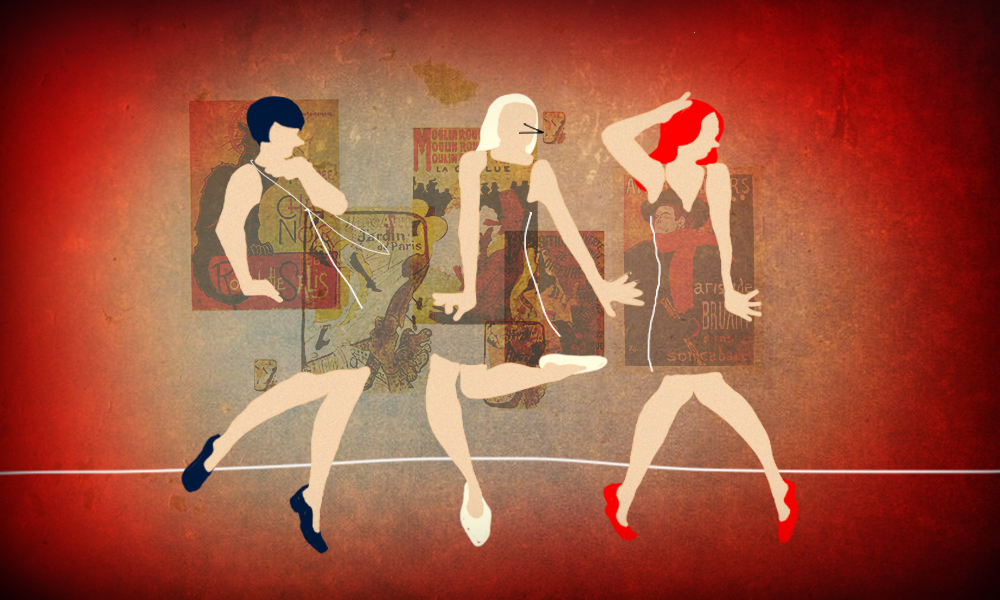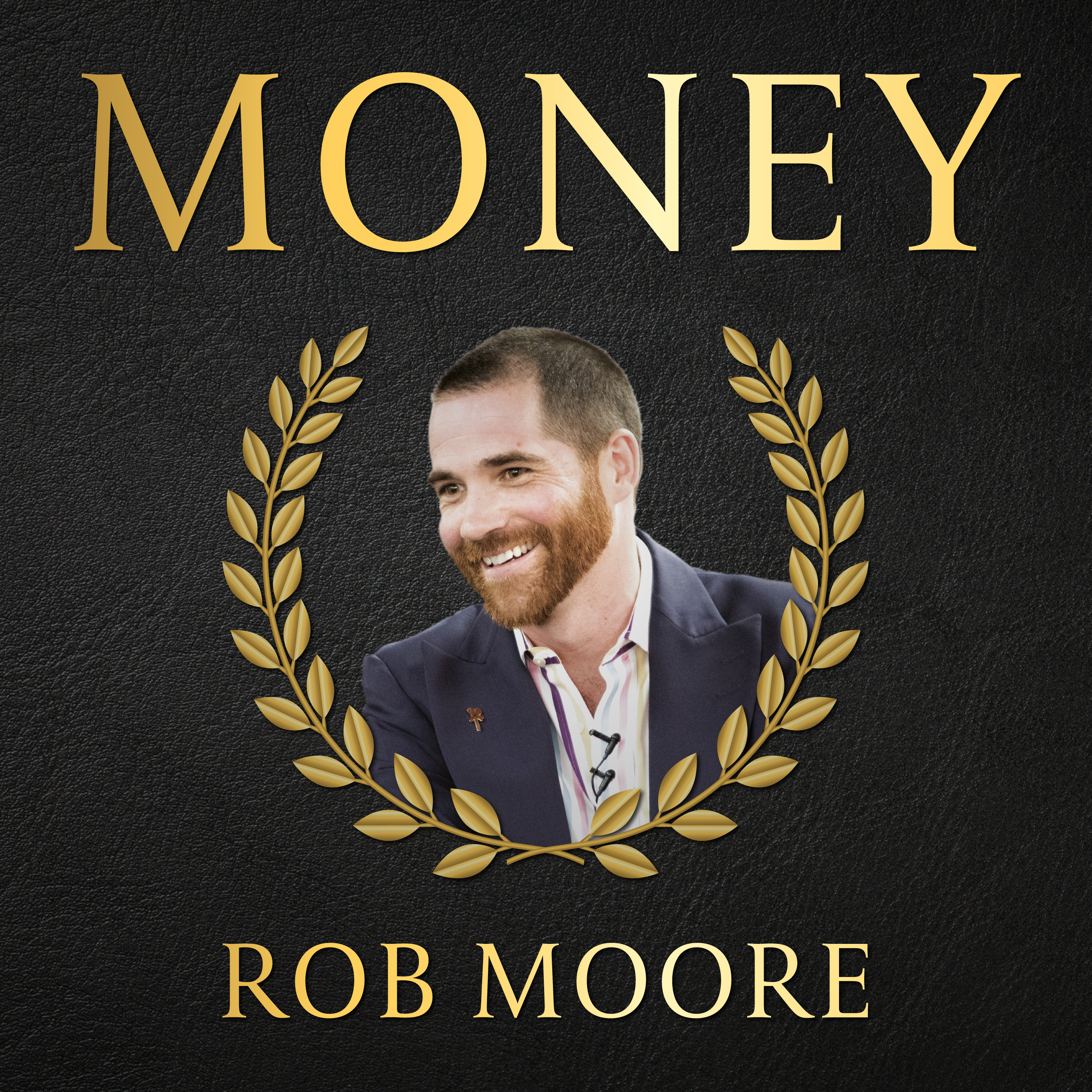
If there was a rule book of life, there would be one particular page that was highlighted, bold, and titled as most important. It would be the one …
* This article was originally published here




Let’s assume that a little under a year ago, you started a new business. You woke up this morning and were horrified to find that it has failed. What happened? What went wrong?
These are the first questions of what’s called a premortem, a popular business exercise, and the Harvard Business School case study. Businesses are supposed to conduct a premortem to find out what might go wrong about a decision they’re pondering (e.g., launching a new product, shaking up the organizational structure, etc.) and avoid potential failures before they happen.
Recently, I’ve seen a few authors and bloggers espousing the benefits of a premortem for individuals. Assuming your new side hustle failed or your move to a new city was a disaster, what went wrong? Armed with these insights, you can adjust your approach and improve your likelihood of success.
People in the financial independence community strike me as being pretty good at conducting these premortems in some areas of life. For example, what if I woke up penniless on my 90th birthday? What could have gone wrong? I could have:
With those things in mind, I would be more likely to save and invest prudently. In doing so, I would eliminate the most obvious potential pitfalls, significantly reducing the likelihood that I’ll wake up old and broke.
But this is just one area of life. Let’s consider a broader scenario. Instead of waking up penniless on my 90th birthday, let’s say I wake up on my 90th birthday and realize that I’ve wasted my life and mislived to a devastating degree. What went wrong?
If you’re like me, you had a few things pop into your head when you considered that scenario. Did you lament that you didn’t spend more time trying to build and cultivate strong relationships with your family (and perhaps having a family of your own)? Did you wish that you had done less pointless work for the sake of money?
These are just a couple of my hypotheses. The premortem flips the standard approach of lifestyle design on its head, making your priorities clearer in the process. It also highlights a few interesting things about risk that are worth exploring.
When we were growing up, things were either “risky” or “safe.” Riding a bike down my very steep driveway: risky. Playing baseball in my backyard with my dad: safe. Racing home to make curfew on suburban streets late at night: risky.
For most of us, our childhood years shape our attitudes toward risk. As I’ve gotten older, I’ve realized how little my concept of risk has evolved from the binary “risky or safe” system I lived by as a child. Many of my friends and colleagues are the same way.
Though all of us have some areas in which our concept of risk has pushed past this childhood system—for the FI community, this is usually saving and investing money—we could all benefit from a more nuanced understanding and treatment of risk.
What does someone mean when they say something is “too risky” for them? We encounter this objection all the time with people who don’t believe in the possibility of early retirement. When we dismiss their arguments as reductive or ill-considered, we often say, “Actually, it’s not risky at all.”
That’s not strictly true, though. There is risk in early retirement, just as there’s risk in investing in index funds or real estate. What we’re saying when we dismiss their understanding of risk is that the risk they write off as Bad Risk is Good Risk.
What constitutes Good Risk versus Bad Risk?
A Good Risk is a risk that either has a high probability of the desired outcome or will deliver palatable side effects even if it doesn’t pay off.
A classic example of Good Risk is a steady investment in index funds. If history repeats itself, you’ll almost certainly end up far wealthier for doing so. If not, you’ll likely beat inflation and will be better off than if you stayed in cash.
Another example is building a side hustle. If you pick something that will develop valuable skills or helps you make connections with interesting, like-minded people, you can succeed in your side-hustle even if you don’t make much money. Moreover, because you aren’t launching a full startup, your financial cost is low, and your downside risk is limited.
On the other side of the coin is Bad Risk. These risks have a lower (or no) probability of payoff and have uncapped downsides (i.e., your potential for loss is theoretically unlimited) if things go wrong. They also carry adverse side effects if they do work out.
Some examples of Bad Risk are apparent. We shouldn’t run out into traffic when cars are coming because we’re running late for a meeting. Our upside (being on time) is far lower than our downside (arriving at the meeting dead). Nor should we put our entire personal wealth on 00 at the casino. The probability of payoff is far, far too low.
Some Bad Risks are less obvious, though, and more insidious. Not taking care of your teeth is a virtually guaranteed path to pain later in life. Avoiding physical exertion in favor of a sedentary life is similarly likely to deliver you a bad outcome. The immediate payoff of not exercising or flossing is limited to a few minutes of slightly higher comfort; the downside is being prematurely old and unable to function normally.
For the most part, people agree on what falls into the Good Risk and Bad Risk buckets. Sure, everyone has different risk tolerances, and there are very few Good Risks for the highly risk-averse person. But by our nature, those of us in the financial independence community are open to some risk.
Our task, then, is to determine which risks to take within the Good Risk bucket.
Avoiding Bad Risk is an excellent start toward a prosperous life. But we can’t take every risk that we’ve classified as “Good,” trusting that things will work out. Within Good Risk, we must determine what’s worthwhile risk and what isn’t. When does it make sense to dial up risk intelligently, and when should we pass up the opportunity?
Intentionally increasing exposure to market risk is what we do by allocating money to index funds. Most of us firmly believe that this is a worthwhile risk. For most of the FI community, this is a well-executed Good Risk.
But what about your career strategy? If you’re like me, you see your career as a block of time during which you rapidly accumulate and invest money, followed by a period of retirement. During the career portion of your life, you might be working on things you like doing or you might not. Many an engineer or financier has developed an interest in financial independence after discovering their jobs to be drudgery.
Once we’ve accumulated the requisite cash, many of us struggle to pull the trigger and jump to a financially free life. How many of us wait the proverbial “one more year” before making the jump out of full-time employment and into early retirement, seeing the choice as an all-or-nothing endeavor?
But paid employment isn’t an all-or-nothing endeavor. The Fioneers have made a compelling case for SlowFI, which they believe represents a golden mean between a supercharged career and full retirement. With SlowFI, you might take a more leisurely, enjoyable path to retirement. It would take more time, but your quality of life would be higher along the way.
If you find your day job to be stressful or unfulfilling, downshifting before retiring is an excellent example of a worthwhile risk. Staying at a job that’s sapping your life force in exchange for money is Bad Risk. You’re locking in a negative life experience in exchange for money that you could earn through other means.
If you’re like me, testing ways to enjoy your career more now—looking for jobs that might be less stressful or more fulfilling—is a worthwhile risk that you’re not fully embracing. The same thing goes for your free time. On the path to whatever version of financial independence you choose, you should be taking steps today to increase your satisfaction with your free time.
On the other side of the equation is Good Risk that isn’t worthwhile. There’s a high likelihood that I would learn valuable skills and make some money if I dedicated 25 hours a week to a new business venture. However, it might take me away from my family and friends, decrease my writing time, or cause me unwanted stress. That’s why I’ve decided that an entrepreneurial pursuit is, while a Good Risk, not one that’s worthwhile at this point.
Determining what’s worthwhile and what isn’t is a matter of personal preference and priorities. The question is less about the characteristics of the risk and more about opportunity costs. A 22-year-old with a 9-to-5 job and lots of free time might find it more worthwhile to start a company than I do as a 29-year-old with a demanding day job and fulfilling hobbies. A parent of three small children will view the opportunity differently than either of us.
I’ve found that while I’m great at identifying and taking risk in some areas, I’m very risk-averse in others. When I behave in risk-averse ways, I’m almost always conflating Good Risk and Bad Risk or failing to distinguish between worthwhile and not worthwhile risk. This confusion leads me to avoid acting on essential things in life that I’ve mislabeled as risks not worth taking.
A careful review of the situation, however, often reveals that the cost of inaction exceeds the risks of failure.
Inaction is easy. It’s inertia. It’s the status quo. The way things are isn’t so bad, right? Why upset the apple cart for a crazy risk?
But, as we’re quick to recognize while looking at the average career strategy, the risk of inaction is often higher than that of action. The tricky part is that it doesn’t feel that way. That’s why we stay in jobs that are unfulfilling well beyond when we should quit them. It’s why we don’t try new things, meet new people, or go to new places.
Let’s consider a typical example for many of my friends: You’ve gotten to know an awesome person and have developed romantic feelings for them. It seems like they might be interested too, but you’re not sure. Do you tell them how you feel? Do you put yourself out there and face the possibility that they might reject you?
Telling the person about your crush could lead to a strong partnership and a lifetime of happiness, or it could lead to them laughing in your face, which feels like an emotional kick to the nether-regions. So we don’t do it.
But the upside is so enormous that the right move is almost always to talk to the person. Having that uncomfortable conversation is Good Risk and highly worthwhile. Yet how many times have we all failed to work up the courage to take this worthwhile risk?
Inaction is more comfortable and, on its face, less risky, so we often choose that path. But inaction is Bad Risk in disguise. You have limited upside (you probably won’t get laughed at), and your downside is unlimited (you might miss out on spending your life with this fantastic person).
The cost of failure—of taking a chance and coming up empty—is easily imaginable. The cost of inaction rarely is. Like the most dangerous Bad Risks, inaction isn’t an all-at-once thing. It seeps into our lives bit by bit. Because it’s hard to envision what might have happened if you took the risk, we don’t know what we’re missing.
The same principle applies to other areas of our lives—interacting with loved ones, taking a chance on hobbies, or changing where you live. Inaction is easier, so it often wins out over worthwhile risks.
How can we loosen the grip that inaction has on our lives? It comes back to reframing risk, and we’ll use the premortem to do so.
The conventional view of failure is trying to start a business that crashes and burns. Of course, this was a Bad Risk; you lost money and faced embarrassment in front of your friends and family. It’s also the romantic failure we imagined above. You work up the courage to ask someone out, and they say no in such a way that it becomes clear they have no interest in you whatsoever.
This surface-level view of failure is one I’ve carried with me for most of my life. Even now, it’s my default setting. In studying my behavior and the behaviors of others, there are only two real failures, regardless of results:
Bad Risks are usually easy to avoid. Don’t abuse drugs and alcohol. Take care of your body and mind. Don’t choose a career that will grind you down or stay in one that’s destructive to your health and happiness. Be kind to people. It’s simple advice, and I’ll assume that most of us have it covered.
The avoidance of Good Risk is the one that has the potential to generate regret down the line, and this is the one worth reframing. Inaction doesn’t feel like a failure at all. It feels like the easiest way to avoid failure, so how can we rewire our minds to take the proper view?
That’s where the premortem comes in. Let’s revisit the hypothetical I set up at the start of this post. You’re sitting in bed looking back on your life, and it’s been a failure. There will probably be things you wish that you hadn’t done, but what about the things you wish you had done? What risks didn’t you take that you should have?
There are a few obvious areas of life worth exploring.
Work: Did you work too much on things that weren’t fulfilling to you? Conversely, did you work enough on things that you found rewarding? Did you find something that you could do nearly every day that brought you happiness?
Family: Did you spend enough time with your loved ones? When you were with them, were you fully present? Did you make sure to express how you felt about them while there was time? If you wanted a family of your own, did you do everything you could to have one and prioritize it?
Relationships: Did you seek out a life partner who shared your values? When you found one, did you treat them well and work at strengthening your relationship? Were you strict in reining in your bad behaviors and lenient in dealing with theirs?
Health: Did you protect your physical and mental health to the best of your ability?
Hobbies: Did you seek out things that were interesting to you and delve into them? Were you engrossed in something outside yourself or engaged in a lifelong pursuit of knowledge in a specific field?
Your mileage may vary with each of the above. But if you do a premortem on your life at the macro level, you’ll find interesting things worth drilling into in each of those buckets. I’m willing to bet you’ll find something you’ve been putting off or to which you haven’t paid enough attention. There might be something that you’ve misclassified as a Bad Risk that’s an uncomfortable Good Risk.
Though the idea of picturing yourself as an old, regretful person can seem morbid, it’s the most effective device I’ve found for correctly framing the risk of failure. Failure is not taking a Good Risk and having an adverse outcome, it’s deciding not to take the chance at all.
Most of us probably aren’t taking enough Good Risks. As a species, we don’t give a new hobby an earnest shot, start a side hustle, or talk to the potential romantic partner nearly often enough. If we did more of this, we would live better, happier lives in the present and minimize our risk of becoming that old, regretful person down the line.
That’s the real danger of inaction. As Lao Tzu said, “If you do not change direction, you may end up where you are heading.”
In some areas of life, you’re likely right on track. But we all have blind spots, pieces of our life we choose to ignore. Give your life a thorough once-over in the coming weeks. It may even be worth conducting a premortem on yourself. Pay special attention to areas on which you don’t usually dwell.
Where can you least afford to end up where you’re heading? What can you do to change it?
Note to self: You are worthy of forgiveness.
Reread that note as much as you need, because it is 100% true. We are so quick to forgive others for the heartbreak, dishonesty, betrayal, and hurt that they bring us but rarely ever give that patience and understanding to ourselves. We allow others to make mistakes and learn from them but hold ourselves to this idea that everything we do must be perfect and that we must have our shit together. Well, let me tell you something: It is time to throw that idea out the window, because it does not belong here.
We are not only worthy of forgiveness, but we deserve it. We deserve it from others, but most importantly, we deserve it from ourselves. We deserve to forgive ourselves for the nights that we sent texts we regret or slept with that person who ghosted us. The nights we started fights with the people we love over things that seem so trivial now. The nights we drank too much and hurt ourselves and others. The days we missed important assignments or work meetings because we slept in and/or made questionable decisions the night before. The times we stayed in relationships way longer than we should have because we were lonely, or blindly in love, or afraid of change. The times we took people for granted or lied to our parents. For all the decisions that led to poor repercussions that were experienced by us or the people we love, we deserve forgiveness.
We are human. We are all human. We are allowed to make mistakes. So often we are told that if you practice something, you will get better at it. But in order to get better at something, you need to make mistakes. That is how you learn how to avoid those mistakes and not make them again in the future, leading to you getting better. So, forget trying to be perfect and start with being human. Allow yourself to be human.
Apologize to those you have hurt and work toward being better. But forgive yourselves for the missteps you make along the way. There will be people who cannot forgive you, and that is okay. It does not mean you do not deserve to forgive yourself and become a better person. You do. You always do. Sometimes we know better and make bad decisions anyway. Sometimes we really do not know better. We deserve to forgive ourselves either way.
Make mistakes. Apologize. Forgive yourself. Learn. Repeat.
It’s crazy how we inhibit ourselves without even realizing it.
Lofty dreams, obvious passions, and kismet pings of insight are right within our grasp, practically begging us to grab hold.
Yet we resist.
We shrug it off and wait.
We wait for the right moment. We wait for the right person to push us off the ledge, all while forgetting we only have ourselves at the top of the mountain.
The truth is no matter how much we sit, ponder, and stare into the unknown beneath us, nothing will change.
Until. We. Jump.
It’s all in our control.
You want to try something? Try it.
You want to be something? Be it.
You want to do something? Do it.
I understand this concept is simple, yes. But actually following through is a whole other story.
I’ve been patiently waiting for my thoughts, dreams, creativity, and ideas to be validated.
I’ve been waiting to be told that I’m enough just as I am, for better or for worse.
The truth is, I’ve had people tell me these things until they’re blue in the face and nothing has changed.
I’m realizing there’s no fairy godmother who’s going to flick her magic wand and somehow I’ll wake up perfectly and wholly me, fully and fearlessly expressed.
I’ve got to validate me.
I’ve got to commit to me.
I’ve got to decide that I’m enough.
I’ve revelled in many inspirational quotes and articles, grasping for the magical insight or epiphany that will set me free from the self-imposed chains tying me down.
This isn’t me telling you you’re enough. I can’t make you believe that.
This is me telling you to stop looking outside of yourself. Stop waiting for your friends, your significant other, social media, or your Mom to give you permission to feel worthy.
It won’t work.
Until you decide for yourself that you’re enough, you’re going to be imprisoned.
Set yourself free and jump.



You're reading Six Louise Hay Quotes That Will Help Get You Through Quarantine, originally posted on Pick the Brain | Motivation and Self Improvement. If you're enjoying this, please visit our site for more inspirational articles.

Do you ever wonder how you’re going to get through it?
“It” being the scary, hard, seemingly impossible-to-overcome thing that you’re currently facing?
If you’ve ever had feelings like that, you’re definitely not alone! I think it’s safe to say that everyone has experienced feeling this way at some point in their life. Especially right now, with so many people in quarantine from COVID-19.
I felt that way when it seemed like I was stuck in a job that I just couldn’t take anymore. Every single day was a struggle to get through. Monday through Friday, I woke up with the horrible awareness that I was going to spend the next 8 hours bored, unhappy, and unfulfilled. I dreaded each day. I had to drag myself to work day in and day out. I felt no joy in what I was doing, but I felt like I had no choice but to keep doing what I was doing in order to make ends meet.
I was stuck in this gloomy, depressing, mental and emotional space day after day. And needless to say, it had a huge negative impact on my mental health.
Have You Ever Felt Stuck or Hopeless?
A lot of people are feeling this way right now because of the coronavirus pandemic that is ravaging the world. People are stuck inside their homes, unless they have to go somewhere for an “essential” service. They are literally “stuck” in place.
So many people have been laid off or fired, and are now left wondering and worrying about how they are going to pay their rent, buy food, or pay their bills. People are scared and stressed.
You may be one of them- feeling hopeless; wondering how you possibly improve your current situation with everything that’s going on in world and with the state of the economy right now?
No matter what the situation, or how different your situation may be from someone else’s, you can rest assured that everyone, at some point, has felt this low vibe, melancholy way. However, the knowledge that you’re not alone doesn’t really do much to make your situation, or how you’re feeling right now, any better, now does it?!?
But, the rest of this article just might!
Minds-set Shifts to Get Through the Tough Times
Louise Hay may no longer be with us, but her wisdom definitely lives on! Below are few extremely inspirational quotes from her book with Cheryl Richardson, You Can Create an Exceptional Life.
All of these quotes can help you change your current viewpoint and help you to work your way out of a situation that feels hopeless, overwhelming, and scary.
A Little Help From Louise Hay
“Miracles occur when we repeat our positive affirmations as often as, or more often than, our worries. This is how our negative conditions begin to turn around, no matter what the problem.”
When you’re going through something that’s hard, overwhelming, and seems hopeless, it can be ridiculously easy to focus on the negative.
I mean, how can you not worry? How can you not stress?
The first step is to become aware of the worried or stressed thoughts that are running through your head at lightning speed. Then, each time you have a worried, scared, or stressful thought, acknowledge it and feel it. Sit with it. Don’t try to ignore it or bury it; that won’t help matters in the long run. But then you need to work on intentionally shifting to a different thought, even if that new thought is just slightly better than the negative thought it’s replacing.
Instead of thinking “This is hopeless”, change it to “I will make it through this eventually”. Instead of “Things will never get better”, change it to “I can create positive changes, just by taking one small step at a time”.
If you can do this each and every time you have a fearful thought, or at least every time that you catch them happening, it will have a profound impact on your outlook…and your situation.
“By training ourselves to see the perfection in our most difficult moments- a perspective that can often only be seen in hindsight- we learn to trust life. We come to understand that, while we might not like a certain outcome, life may be leading us in a new, more appropriate and beneficial direction.”
This idea further builds on the first quote. If you can get into the habit of changing how you see things, you can truly change your life- for the better. Is there any way you can shift your current negative viewpoint and see a glimmer of positivity, no matter how tiny it may be?
For example, if you’re stuck at home during a quarantine, can you bel glad that you get to spend more time with your kids before they grow up and leave home? If you’re not able to work, can you use this time to get super clear on what you want in life? Or maybe you can finally take the time to learn the new skill you’ve been wanting to focus on but never had the time to do so-until now? Do you finally have the time to get into a regular exercise routine?
Even though your current situation may not be ideal in any way, shape, or form, believe that it is happening for the best; it can lead you in an amazing, new direction you never would have seen coming otherwise!
Focus on: “Simplicity- focusing on small, manageable steps instead of making things complicated.
Optimism- putting attention and energy toward solutions rather than focusing on problems.”
When you’re overwhelmed by something- trying to find a job in a recession; trying to discover what you actually want to do with your life so that you can get out of your unfulfilling job; trying to make your business grow- try breaking the big, huge, daunting goal into little, simple steps.
For example, if the idea of trying to figure out what you want to do with your life stresses you out to the point where your mind just shuts down, how can you take baby steps forward?
You can:
The key is to break down the big goal into as many simple steps as you can, and then take those steps one minute/hour/day at a time. You don’t need to worry about trying to do everything all in one day; we’re trying to minimize the overwhelm by breaking these steps down. That way, you can move forward from a good, positive, productive head space. Which helps keep you on track for the second part of that quote- optimism.
“How can I really feel good in this moment? What thoughts can I think right now that will make me feel better? That’s the question we need to constantly be asking ourselves.”
The goal here is to get out of a negative mind space. Nothing good can come from that space, or those kinds of thoughts.
So, even when you’re stressed, even when you’re overwhelmed, even when you feel that you’ll never get out of the situation you’re stuck in- how can you feel good in that moment?
Can you be grateful for your job and your paycheck, even if it’s not the job of your dreams?
If you’ve lost your job, can you focus on the thought that maybe, just maybe, it’s because you’re about to get an even better job? And you never would have even been aware that this other job was out there if you were still employed at your previous job?
Channel Pollyanna and play the Glad game; what can you feel glad about in this moment? What possible silver lining can you find in your situation? Keep trying to look at things from this positive perspective, and see how your spirits lift!
“Most people have created a habit of constantly complaining in their mind. Each time we do this, it is an affirmation, a very negative affirmation. The more we complain, the more we find to complain about. Life always gives us what we concentrate on.”
Again, when you’re going through something stressful it can be very hard to not focus on the negative. It can seem impossible to not worry. But, here’s the key: just try your hardest not to put too much time & energy on the negative affirmations- the worry, the stress, the complaints.
When you’re in a low space, a space where you’re scared or anxious or depressed, all you’re going to do is bring about more to be scared about, more to be anxious about, more to be depressed about. But don’t freak out when you do feel those emotions. Feel the fear, feel the worry, feel the stress. Acknowledge what is making you feel those feelings. Just don’t let those feeling overtake your whole day or week or month! Shift out of them as quickly as possible. Shift your thoughts to more positive ones.
Get in a positive space so that you can find more to be positive about- life always gives you what you concentrate on!
“Our thinking either makes us feel good or it makes us feel bad. It’s not the events nearly as much as it’s the thoughts.”
Everything up to now basically comes down to these 2 sentences. The thoughts you think can make you feel good or they can make feel bad. Even if you are in the midst of a seemingly hopeless situation, it is still possible to have thoughts that make you feel good!
We always have a choice. You and you alone are in control of your thoughts.
You can choose to think:
Choose to think the thoughts that make you feel good!
You've read Six Louise Hay Quotes That Will Help Get You Through Quarantine, originally posted on Pick the Brain | Motivation and Self Improvement. If you've enjoyed this, please visit our site for more inspirational articles.

“Should I kill myself, or have a cup of coffee?” – Albert Camus
I often laugh as I sip my morning coffee—to the extent that I’m able to remember this quote, that is.
It’s a snarky reminder that we are alive and we are faced with a choice to truly live. We tend to get distracted by the mirage of busyness, the minutiae that have us pretending to be big and famous and important.
So many of us fall into the trap of taking life seriously. We furrow our brows and clench our jaws in preparation for the next grand disaster of the day; we anxiously allot minutes and seconds to each task in our agenda with the precision of an astrophysicist.
And somewhere between our morning coffee and our nighttime anxiolytic, we forget that this is all the hokey pokey… and that’s what it’s all about!
Sometimes I take myself seriously, but most times I take myself shopping. Because horrific things happen when you take yourself too seriously. It actually sets off a cascade of crises: You start to think about how you’re not where you want to be quite yet, then your reticular activating system (RAS) runs up to the lighthouse of your mind and starts to shine a huge, gnarly beam on all of your failures, and no safety boat seems to be in sight. According to your mind, no matter how successful you actually are, you feel like you’re going to drown.
Even in the best case scenario, life will still feel heavy. When you take yourself too seriously and it works out well, you are a slave to yourself. (Congratulations, you played yourself!) You have to constantly fan the flames of your pompous ego, feeding it grapes and making sure nothing threatens its glorious self-image.
But what if you let it all go and realize that this moment right here, this is what it’s all about? That this is the elusive Hokey Pokey after all?
Well, then life becomes humorous. It becomes a constant, light-as-Starbucks-froth-on-your-latte rendezvous. Everything about it becomes fun. The fact that you are alive at all is reason enough to be perplexed and amused.
You live life for the sake of living, and in one fell swoop that annihilates the fear, insecurities, inauthentic goals, and ambitions and silences your pesky ego for good.
And you know what else? Taking life lightly allows you to chase what you really want.
Because in what will seem like a handful of days, we will all be dead. What is the use in living as though that’s already the case? As though living any life other than a daring life, is worthwhile at all?
Perhaps a good balance to strike is to shift frequently between the ultimate and the immediate to remind ourselves that we are roaming on a piece of carbon floating and twisting in the ether.





You're reading Why Waiting for a Return to Normal May Spell the End of Your Relationship, originally posted on Pick the Brain | Motivation and Self Improvement. If you're enjoying this, please visit our site for more inspirational articles.

COVID-19 has changed things in the world in many ways. What lasting impact this will have remains to be seen. What we do know is that impact is inevitable. When change occurs on the earth at this level, we have to be willing to change with it. This includes changing how we are with relationships as well.
Are you in isolation with your partner right now? Or has this time of quarantine created a separation between you and your partner? Either way, if you are trying to ride this wave of the Coronavirus, waiting for a return to normal so things will go back to normal with your relationship, that might not work.
What if you can use this as an opportunity to look at what you can create now that you never considered before because you were too distracted by what you thought your relationship was supposed to be? Ask, “What would it be like if we created this relationship to be different? If we weren’t trying to create it as it has been or as we thought it should be, what would we choose now?”
Have you ever noticed that most relationships, after around 5 years, go to a place of maintaining rather than growing? And if a relationship is not growing it will die. Something you can start right now is to stop looking to maintain what was and start looking at what you would like to create for your future.
If you can create a relationship now, in times like these, you are going to have a relationship that is unstoppable and here are my top 3 tips on that.
1. Tell Yourself the Truth
When was the last time you sat down and looked at what you desire as your life? Many couples fall into the rut of doing what they think their partner wants them to do, spending time with the people their partners are ok with, doing things that their partner likes to do so they can do them together. If you stay in this rut for too long you won’t even know what is true for you.
What if the idea that we have to give up ourselves and sacrifice to show someone we love them is a lie that will destroy your relationships? If you don’t have you in the relationship, how can it work? To get out of this rut start asking yourself, “What is true for me? What do I desire as my life?” Be brutally honest with yourself. Whatever you discover as you ask these questions, move forward with those things. What’s one action you can take each day that takes you closer to what you desire?
2. Lose Expectations
What expectations do you have of your partner? What qualities do you expect them to have? Kindness? Playfulness? Sense of adventure? Non-judgmental? A common thing that occurs in relationships is that we look for our partner to do and be the things we desire rather than choosing to do and be them for ourselves, and then we blame them for what isn’t working.
I am going to let you in on a little secret, YOU create your life. How? By what you choose. If you don’t like how things are in your life and in your relationship, what if you are the one who can change it? It starts by committing to your life. If you are not committed to your life and someone doesn’t fulfill something you’ve decided they should fulfill, then it’s easy to blame them and that’s when fights and arguments start.
The next time someone isn’t fulfilling your expectations, rather than going to blame, stop and ask, “How did I create this?” It is not about making yourself wrong but if you get that you are the one that created it, then you also get that you are the one that can change it.
3. Choose Gratitude
Did you know that the greatest relationship killer is judgment? Yet judgment is what many relationships are built on. We judge our partners. We judge the relationship. We judge ourselves. Gratitude is the anecdote to judgment., Judgment and gratitude cannot exist at the same time. Choose gratitude. What are you grateful for about you? What are you grateful for about your partner? What does work in your relationship. Choose gratitude. Keep choosing gratitude. Then watch things grow.
Whatever your current relationship situation, what if now is not the time to sit back and wait for things to go back to normal in the world? What if now is the time for change? Start asking what you would like to have as your life. Start looking at what you desire to create with and as your relationship. What if you are one choice away from a greater possibility? What if you are one choice from change?
Brendon Watt is a speaker, entrepreneur and life mentor. He is the author of the best-selling book, Relationship: Are You Sure You Want One? and founder of the Relationship Done Different workshop series. Brendon is a lead facilitator with Access Consciousness®, facilitating classes and workshops all over the world, encouraging others to step out of judgement and into a more authentic, fulfilling life. Each week you can find him on his podcast, One Choice from Change: https://www.onechoicefromchange.com/. Follow Brendon.
You've read Why Waiting for a Return to Normal May Spell the End of Your Relationship, originally posted on Pick the Brain | Motivation and Self Improvement. If you've enjoyed this, please visit our site for more inspirational articles.
This article is written by a student writer from the Her Campus at KCL chapter.In The Four Agreements: A Guide to Personal Freedom, a powerf...